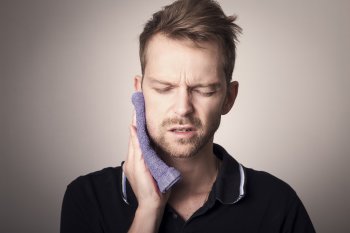
Thanks to COVID-19, the entire world is dealing with issues unlike anything we’ve ever experienced. This has been a stressful year – for everyone. If we can get through it with our health, our family, and in good spirits; it’ll be a success.
The pandemic has caused plenty of obvious problems for so many, but there a few under the radar concerns that could be affecting your oral health. Bruxism, for example, is a condition in which you grind or clench your teeth. More than 200,000 people suffer from this condition annually, but it has become much more common due to COVID-related stress and anxiety.
Missing out on family gatherings, stressing over finances, watching the news, worrying about your family’s health; all of these and more are causing frustration and leading to excessive teeth grinding. The worst part? You probably don’t even recognize you’re doing it. Bruxism can affect adults and children and can occur at all hours of the day or night.
According to the Journal of Clinical Medicine, a study of 1,792 people in Poland and Israel found that Bruxism increased from 10% to 25% during the first few weeks of the pandemic. Lead authors Alona Emodi-Perlman and Ilana Eli of Goldschleger School of Dental Medicine at Tel Aviv University said:
“Our study, conducted during the first lockdown of the COVID-19 pandemic, found a significant rise in the symptoms of jaw and facial pain, jaw-clenching, and teeth-grinding – well-known manifestations of anxiety and emotional distress.”
The Effects of Bruxism
Though some people can grind their teeth without showing symptoms, there can be serious problems if not addressed. Bruxism can wear down your teeth, leading to blunt or fractured teeth, jaw misalignment, and increased pressure on the muscles, tissues, and other structures around the jaw. Here are some of the additional effects of teeth grinding:
- Jaw pain and stiffness
- Earache
- Sore gums
- Temporomandibular joint syndrome (TMJ)
- Sensitive, loose, or broken teeth
- Headache
- Clicking or popping of jaw joints
Other key effects – especially during these uncertain times – include anxiety, depression, insomnia, and obstructive sleep apnea (OSA). In fact, according to Sleep Foundation, one of the main risk factors for bruxism is OSA. CPAP devices can help those struggling exclusively with OSA, but if bruxism or teeth clenching is present, a dental device might be more effective.
Correcting and Preventing Bruxism
First, do what you can to reduce your stress. In 2020, that might seem like an impossible feat – but any little bit will help! Take some time to read a good book, practice light meditation, exercise, eat right, and do something fun. All of these aren’t going to quell your teeth grinding habits immediately, but they will certainly help! Additionally, drinking more water throughout the day and consciously relaxing your jaw muscles can help.
Whether it’s COVID-related or not, if you believe you are suffering from bruxism, the cosmetic and restorative dentistry of Buhite and Buhite, DDS in Rochester can advise you on how to prevent teeth grinding in the future and treat the problem. It’s best to be evaluated by a professional to find out what the underlying source of the bruxism might be. As an alternative to CPAP, we can craft a dental device for you to wear and prevent any further damage to your teeth. If some of the more damaging symptoms of bruxism have already occurred, restorative dentistry might be necessary – and we’re here to help.
For high-quality cosmetic and restorative dentistry services in Rochester, look no further than Buhite and Buhite, DDS. To stop grinding your teeth and improve your oral health, call us today: (585) 342-1323.

